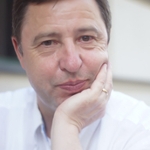非常抱歉,
你要访问的页面不存在,
非常抱歉,
你要访问的页面不存在,
非常抱歉,
你要访问的页面不存在,
验证码:

职称: Associate Professor/Chair
所属学校:Emory University
所属院系:German Studies, Core Faculty
所属专业:German Studies
联系方式:404-712-4614
Teaching Fields: German Literature and Culture since the 18th Century, German-Jewish Culture since 1750, Modern Cultural History of Berlin and Vienna, Genre Theory (Drama) and History of German Drama and Theater Peter Höyng studied Germanistik and European history in Bonn and Siegen, and continued his studies in German literature at the University of Wisconsin-Madison where he received his Ph.D. in 1994. After his years of research, teaching, and service at the University of Tennessee-Knoxville, he joined the faculty of the German Studies Department at Emory’s College of Arts & Sciences in 2005. He has been awarded numerous institutional research grants, including one from the Stiftung Weimarer Klassik. He also secured a number of grants for his scholarship and teaching from organizations such as the DAAD (German Academic Exchange Service), the Max Kade Foundation, or the Checkpoint Charlie Foundation. In 2002, he was the recipient of the Jefferson Prize from the University of Tennessee for his excellence in research. In spring semester 2013, he was a Fulbright Senior Research Fellow at the Institut für Kulturwissenschaften (Institute for Cultural Studies) in Vienna, Austria. Focusing on German literature and culture since 1750, Höyng’s research centers thematically around four distinct areas: (1) genre-wise, he predominantly explores dramatic texts within its performative contexts, (2) geographically, his research tilts towards cultural creations emanating from Austria, (3) topically, he pursues the works of assimilated German-Jewish figures, and (4) the interaction between literature and classical music as evident in his ongoing research on Beethoven’s intellectual interests. Divergent as these four areas may seem, his trans-disciplinary approach often leads to an overlap of them, such as when he interprets Beethoven’s composition of the so-called Flohlied from Goethe’s foremost drama Faust I, or the composer’s disinterest of pursuing Franz Grillparzer’s libretto of Melusina as an opera. To date, he traced Beethoven’s avid interest in literature by focusing on his favorite authors, i.e., Shakespeare, Goethe, and Schiller. Previously, Höyng’s integrative approach of different fields is evident in his edited volume on the Jewish dramatist George Tabori (Verkörperte Geschichtsentwürfe: George Taboris Theaterarbeit. Embodied Projections on History: George Tabori’s Theater Work. Tübingen: Francke, 1998), and his monograph that interconnects the discourses of history and drama: Die Sterne, die Zensur und das Vaterland: Geschichte und Theater im späten 18. Jahrhundert. Wien, Köln, and Weimar: Böhlau, 2003. Höyng enjoys teaching German as a second language at all levels and has offered cultural and literary courses at the graduate and undergraduate level that reflect his four research areas since they range from Goethe to Brecht, from the Berlin Wall to Jewish culture in Vienna, from an introduction to the weekly Die Zeit to “Love, Marriage and Gender: From Bach to Weill.” For the long-standing departmental Summer Study Abroad Program in Vienna, he designed a new course, entitled: “Veni, Vidi, Vici: Conquering the Burg.” Except for his sabbatical year, Höyng has served as Chair of the German Studies Department from 2005-2013. He is also an affiliated faculty with the Tam Institute for Jewish Studies. In 2006, he was elected to serve on the Executive Committee from 2007-2009 of the American Association for Teachers in German, the AATG, and in 2010 he participated in a yearlong leadership program at Emory University.
GER 370A: Veni,vidi,vici- Conquering the Burgtheater